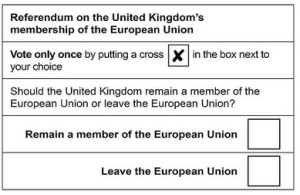-
Posts
6,047 -
Joined
-
Last visited
-
Days Won
40
Content Type
Profiles
Forums
Gallery
Downloads
Blogs
Events
Our Shop
Movies
Books
Everything posted by Jerry_Atrick
-
That was my guess, but what is the reason for their failuire? Is it because they are incompetent, or the government and public service being incompetent, not even asking for advice, or asking for advice after they have decided what they are going to do (and like CASA, would not want to backtrack through pride when they propose something stupid)? I don't know. If they are that bad, I am (reasonably) sure that they will then be dissolved and a new representative body formed, like they did with the AAT - which was stacked with LNP staffers and wannabes - but no one really seems to think that is a big issue - until they need something decided by the AAT. If there is a constitutional requirement for the consultative body, it provides a much bigger incentive for a government to do iit better as they run the risk of being accused of acting unconstitutionally, and ultimately being taken to the High Court.
-
Again, I fail to understand your point. Your assertion is that this will be the case, but how do you know until laws are ennacted? What is your evidence? Has there been a speech or policy document released? By those that would be framing the legilsation in the unlikely event it gets up? OK - that may be the case - depending on how appointments are enacted, but my point is that there is nothing in the constitution that stops bias (yes people) being appointed to far more important constiutional roles such as the high court judges, which assert controls over the parliament and government; nor the heads of the armed forces; which can thwart any constitutional order if they wish. Your point is that a mere consultative body has to have a higher standard for it to be acceptable - or have I missed something? It seems you're basing your argument on conjecture. And don't forget, say it was decided to determine exolicitly how to appoint the board and representatives, and for some reason, it turned out not to meet the desired outcomes and yes people could easily be appointed, by puttiung it in the contitution, you would need another referendum to change it. I am not sure of the relevance, except that are you suggesting the majority of non-urban first nations are against it? Or are you saying there is a general first nations' gentry that don't understand the issues and they will likely be appointed as the consultative representatives - and that levels of employment, wealth, and health are consistent with non-first nations people? From my experience, urban Aboriginals weren't fairing too well on average, either - but yes, they have a slightly different set of problems, but maybe with the same or similar root causes. Again, it seems a little crystal ball gazing.. In a perfect world, yes. But sadly, even this government, which is far better than the last seems to compromise that moral fortitude (denying Qatar Airlines additional flights, for example, and don't get me started on private hearings for NACC). And one thing is for certain, there will be many more governments not only with less moral fortitide, but probably abundant immoral fortitude, I can't think of a better way to guarantee the government to be compelled to consult with first nations people on matters affecting them, then enshrining it in the constitution. What you are asking, er hoping for is, let's be honest, wishful thinking. But, I doi agree, even enshrining it in the constitution is no guarantee, but at least issues will be elevated and the government can be taken to court should the render the consultation process nothing more than a tick box exerxcise. Ironically, the decision may well come doen to the bias of judges appointed, which the constitution doesn't protect from. Outside your original point, but I think you are quite right. And, gtiven the first nations people had their land illehally takken without a treaty way back when (unlike the treaty with the Moaris in NZ), they were displaced, suffered from not being recognised as citizens in their own country for the best part of 150 years or more, and there have been systematic transgressions and institutional racism to a much higher extent than other minorities, leading to all sorts of inter-generational issues, they would appear to be a people that should enjoy a fair share of the profits of the country to be directed to help them get back to an even keel - on their terms (not necessarily dressing up in a suit and going to church).
-
I am not sure what your point is? The Australian Tourism Authority that put ScoMo in as a disastrous CEO or head of marketing or whatever would have done so under legislation (primary and secondary made by the responsible department) and not the constitution. Aha! but you've got me as this is not an authority enshrined in the constitution. OK. Let's look at some very important constitutional appointments. The judges of the high court. Chapter III, section 72 provides the governor general makes the appointments of judges, but like most things the GG does, it is on the advice of the PM and in this case, the PM takes advice of the Attorney General. All are political appointments. So, what judges of what colour get in? At least in Australia, it is still, like the UK, based on politically neutral conventions, but there is no constitutional protection, as who appoints the GG? The chief of staff of the defence forces, who could (in theory) command a military coup? The constitution (section 68) has the same provision as section 72, above. and the detail is contained t's all contained in the Defence Act 1903 (made by parliament) and delegated legislation, regulations, etc. OK.. But what about the fiendish public servant executives? Section 67 says until parliament says otherwise (and parliament has since said otherwise), "the appointment and removal of all other officers of the Executive Government of the Commonwealth shall be vested in the Governor‑General in Council..." Virtually every head of every department, force, authority, etc, is set politically... not prescribed nor guaranteed to be impartial by the constitution. Why, because it is a consultative body with no powers, should it be any different or held to a higher level? Could it be because it is about first nations people?
-
The NIAA annd NAIDOC will probably be folded into what may become the voice; so there probably will not be a net increase in costs as a result., Even if there were, on the assumption it is to pay first nations people who know their people and the cultural, physical, and mental dimensions of their people, they are a lot cheaper and much better value for money than the big 4. Many years ago, I was doing a contract for London Underground, and there were two ex Big 4 counsultants of the same firm working with me. They joked and laughed how their firm was retained by a prominent Melbourne metal recyclign firm, and their advice, which wwas implemented took them from the number one private recycler to about number 4, from memory. But to be fair, I am working with a team from the same firm at the moment on an urgent piece of work, and the team they have sent seem to be competent, but not worth the 4x a contractor's rate per day. Yes - the thread is named the further effects, but it has morphed to a debate. So, maybe mods can rename it to The Voice Debate. I don't think the voice guarantees any outcomes - good or bad. What it does guarantee is a first nations representative body is consulted on matters affecting their community. In the same way, we can't guarantee that the armed forces will successfully defend Austrlia in the case of an invaasion, or even operate effectively against boat people (something they are currently deployed for). In fact, there is plenty of evidence that it is not effective in its stated aims. But does that mean, we should defund the armed forces and remove the power from the constitution? Remember, the constitution is about providing powers and obligations of the state. There are no guarantees that any of the powers or obligations will be used to create "grand outcomes". How many grand oputcomes are the result of the government of the day? Again, the Voice isn't purporting it is a silver bullet - or magical outcome. When has anyone voted for anything that would provide such an outcome? Virtually all votes are a hope for an outcome at best. The voice simply compels the government of the day to fund a representative body of first nations people. The idea is for them to advise the best way to address the issues with the money rather than spend more. In other words, minimising the risk of "pouring money into it and not getting the results required." No guarantees, but if you ask the people in the know before you spend the money, you may get a better result - especially if you are compelled to ask. It also means the government can't do what they did with ATSIC.. sort of.. In reality, a govenment can provide the minimum funding so the voice can't operate, and they can announce they will sack everyione and reconstitute it with Jacinta Price as the CEO, etc.. It is not a guarantee of anything other than the government will be forced to listen, if not heed, to what a representative body says. And before someone says, "Yeah, but because it doesn't guarantee anything, or because it doesn't stipulate a minimum standard, or the compostiion, etc.".. The consitution is not about that; it is about setting out the powers, obligations and limits thereof of the nation state; parliament, the courts, and the executive (government and executive of the public service) fill in the blanks.. Again, look at part V of Australia'sd constitution - all powers are one liners or not much more and there are definitely no minimum standards or golden outcomes in there, nor guaranteed. BTW, I am only trying to provide the context of inserting any power or obligation in the constituion. People should vote on whether or they feel the government should be compelled under the constitution to fund a first nations representative body, and consult with it (listen to, but not necessarily heed the advice)... Because, that is all the referendum is. As with every other power and obligation, parliament will legislate, the executive will implement, and the courts will rule on it. And over time, through the democratic processes, the laws, implementations, and rulings will change to reflect changes in society and progress on first nations' affairs - or the whims of Muderoch et al.
-
I don't think it dawned on him the lengths Donny was prepared to go until he couldn't back out. But, to be fair, I am guessing not many people would have guessed what happened that day was actually going to happen.
-
Have perused them some time ago.. Great work!
-
In answer to the question posed by the tread - work, eat, skip the pub, and drop a few posts on these great fora!
-
He grew a set of gonads after the mob was finally cleared that came to lynch him... Liz stood up to him all the way...
-
That right rear quater window, seals, and panel may have some damage done to them...
-
Aussie consumer law does need to catch up with the 21st century.. If such a restriction is in the fine print (i.e. all the literature gives you the impression it is 5 year warranty on everything and the fine print is tuicked away), the restriction does not apply. And a time limited warranty doesn't always apply.. the consumer law has a reasonable expectation requirement for wrranties - if the item purchased would have a reasonable expectation to perform and does not meet it, the seller can be part or fully liable to provide a warranty regardless of any time limitation they put in their contract of sale. Of course, sometimes getting them to cough up is difficult, but I have taken a seller to the county court (small claims court, effectively) and they were forced to replace the item (the court didn't trust them to fix it) and pay for my costs of bringing the action, plus a small amount for wasting my and the court's time.
-
er.. correction to the above (noticed it too late to edit) Mavo v Queenland is actually Mabo v Queensland...
-
Your point is (apart from a factual inaccuracy)? You're conflating a natural legal process that happens every day in our society with the estasblishment of a representative body that consults on matters directly affecting their community. Native Title was not established by any Aboriginal representative body, nor the Aussie parliament. It was established by a case brought to the High Court of Austalia in Mavo v Queensland (cases 1 and 2). Thi High Court of Australia declared the declaration of terra nullius over Australia as defective (wrong) and therefore, void, on the evidence presented to it, noting that the defendant was the QLD government and had ample resources and deployed them to defend the case. This is no different than the recent case where a Gold Coast couple, who were bona fide purchases of their house were booted out and ownership was handed back to an elderly widow because she was fraudulently duped into selling the house by the agent.. The couple did get back their $2.3m (or were suing the QLD government for it.. I can't remember). The High Court found that a fraud was perpetuated that denied Aboriginals rightful ownership. But, of course, Australia had moved on some 200 years by this time, so they made a policy decision to find a construct of Native Title, and it can co-exist with Westminster title. Your factual inaccurcy is that while Uluru was named Ayre's Rock, it ceased to be asacred site. That is clearly wrong, as to the native title holders, it never ceased to be sacred; the whiteys had exploited it. The reason why control of Uluru was handed to the Aboriginals is that a) it was proved to be sacred to them (again, in a court), and there was no Westminster title covering the land at the time. The above was a due legal process. All the "Voice" is, is an amendment to the constitution that compels the government to maintain a first nations representative body that is to be consulted on matters directly affecting the first nations' commity. It is only consultative; it can't compel anyone to do anything. And it is proposed to be establioshed in the constituion because precious (conservative) governments have weapomnised them and ultimately dismantled them. Why is that so hard to get through to people? Of course, with the exception of more extremem representations, it would be a daring government that would reject representations. But for some reason, the No campaign doesn't touch on that.
-
Rub it in to the Melbournittes, fellas! Rub it in....
-
Don't wish that rubbish on a garbage crew!
-
It may be fair enough, but unless you can and do receive time-bound legal requests electronically rather than by letter, then it may put you at a disadvantage if you don't get it ASAP. Society is changiung.. the Post Office should charge the cost + margin for delivering letters.. it may make the move to secure digital communications much quicker.
-
At my age, BODMAS is usually used in reference to the need to eat less and exercise more...
-
O.K. So, let's not learn the easy way from other's successes and mistakes, but continue making our own mistakes.. very interesting approach (sadly, though, too common in politics). On that basis, we should not have elections because we can't try each government before we buy and they should not make laws because they can't be tried before they are bought (some can, yes.. but others not). The reason for consultation periods and public debate is to try and get to undertand what the outcomes would be and the best way to go about it. But, we do have experience from ATSIC to the current representative bodies (NIAA, NAIDOC). All this referendum does is ensure that the government must have a representative body. After the voice, it may well continue as it is, but it ensures that something like ATSIC, where the Howard government systematically defunded it over time to the point where it can't function and, with the sensationalisation of the failings, gave them the opportunity to dismantle formal representation. In practicality, unless there are issues with the current representation, nothing much will probably change after the referendum save for a wider representation in the bodes, except that no matter how much future governments may want to tear down such representation and no matter how much the defund it, they will still have to provide at least some funding to say have a representative body and their intentions will be laid bare.
-
Thankt chaps.. Was about to launch into a diatribe again. No disrespect @spenaroo, but your post did highlight just how bad a campaigner Albanese is. We are how many months after the wording was finalised and released, and there are quite knowledgeable people who still didn't knoiw it existed. On the high of accidentally winning the election, a gush of blood to the head announced, on election night, there would be a referendum on the Voice. I doubt even too many people in Aus had heard of it, let alone knew what it was about. I didn't (although to be fair, I live in the UK, but to keep up with Aussie news and politics and that is one I thought would have made prominance duiring its lifetime a few times). Without having prepated the wording and had a clear message of what it was - without having pre-educated the public and lined up those from the opposition that are in favour, off he went half-cocked.. And provided ideological opposites a gaping wide opportunity to sink it by introducing confusion and misinformation. I urge you to read part V, but particularly section 51 of the Australian constitution: https://www.aph.gov.au/About_Parliament/Senate/Powers_practice_n_procedures/Constitution/chapter1/Part_V_-_Powers_of_the_Parliament It deals with the powers of the commonwealth. Read what they have the power (and in some cases, the obligation) to do. Pick any subject - any power and tell me it is as well or better defined in terms of powers and restrictions. Let's look at one that is near and dear to most people's hearts - this time, immigration. There is a complex body of immigration law, that parliament has made over the years to try and either a) manipulate to win elections or b) implement some comproimise between our international obligations and the public wishes with respect to immigration. Yoiu would think, given the detailed and complex nature of immigration law, and the fact that Australia had the White Australia Policy, I think up to the 70's, there would be some serious definition as to the powers and constraints of immigration powers in the constitution. Yet here it is: "Seciont 51: The Parliament shall, subject to this Constitution, have power12 to make laws for the peace, order, and good government of the Commonwealth with respect to: ... (xxvii): immigration and emigration;" That is it... The wording of the VBoice above goes well beyond most of the definition of powers and obligations of the Commonwealth of Australia (federal government). Now, how is the propose constitutional amendment "far too open ended and no real policy" or so incomplete when compared to the other powers/obligations granted in the constitution? Constituions are frameworks - the laws are the detail. Re Brexit, everyone knew exactly what they were voting for. Like the Voice, there was a lot of disimofrmation of the consequences - but even BoJo acknowledged there would be short to medium term pain. The pollies who wanted to stay in after the referendum decided to muddy the waters on the style of Brexit, but the wording on the referendum was quite clear: The UK doesn't have a consitution like Australia and referendums are not binding on the government/parliament, except where the bill that is passed in parliament expressly says so - and even then, parliament can subsequently enact a law nullifying it. The question of the Voice is do you want to put an obligation on Australian governments to ensure they establish (or keep established) a representative body of first nations people that does not have any formal powers to compel a government to do anything, that are consulted on laws, regulations, policy making of affairs that directly affect them in matters affecting them? Pretty simple... The No Campaign have introduced so much misinformation, it is a continuing disgrace to the antics their main protaginists get up to and that for the palriamentary members of the No campaign, they still draw a public salary.
-
I haven't got one.. Mayne I will reregister to vote... Note, that the AEC did not mandate that either side had to be truthful in their framing of their arguments in the booklet, and so far, even the Merde DOC (thanks, Facthunter - love it) press have not found anything in the Yes arguments to be untruthful - instead many MSMs and social media types have found quite a few faults with the No vote campaign...
-
On the independent tribunals - it is absolute BS.. Firstly, not all MPs are equal, and secondly, who employs this "independent" tribunal. Of course, there has to be some way to review pay of MPs objectively (maybe the Monrach's representative - and making the monarch pay their salaries - you would get a much more robust process). I think with the last government, an objective pay review would have seen serious reductions based on value; and the opposition probably not much better. If true re the transport, absolutely disgraceful (does Jetstar no longer fly to Avalon?) I guess they think if Bronnie Bishop can do it, so can they.
-
Well, I am in absolutely no doubt that the aircraft crash was accidental: https://www.reuters.com/world/europe/russia-will-not-probe-prigozhin-plane-crash-under-international-rules-brazil-2023-08-29/
-
I still use MS Access today











